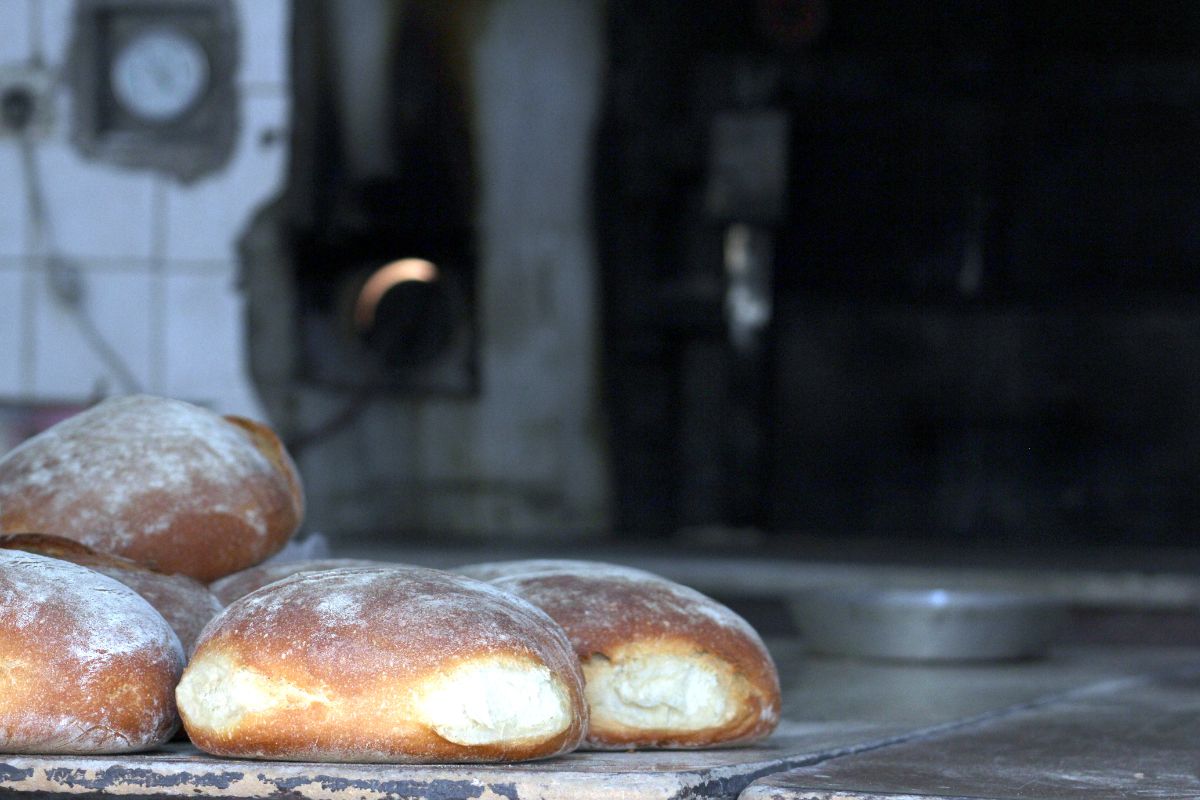What is French bread? That’s a great question! French bread is one of the most popular and widely consumed staples in the world. A traditional French baguette typically consists of high-gluten flour, salt, yeast, and water.
The dough is kneaded by hand and left to rise before it is shaped into long, thin loaves and baked in a hot oven. The result is a crusty, hollow loaf that is crispy on the outside and moist on the inside. Ooh la la!
Average Price of French Bread
If you’ve ever been to a bakery or grocery store, you know that French bread typically costs anywhere between $3 and $5 per loaf. Of course, the exact price depends on where you are shopping and what type of quality you are getting.
Regardless, it’s usually fairly affordable so there’s no need to break the bank if you want to enjoy some delicious French toast or croque monsieur.
Factors Affecting the Price of French Bread
So why does it sometimes cost more money for one loaf of bread than another? Well, there are actually a few factors at play when it comes to pricing French bread. Let’s take a closer look at them:
Quality of Ingredients
The quality of ingredients used when making a loaf of French bread can have a big impact on its price tag. If bakers use higher quality flours with better gluten content and organic ingredients such as butter or eggs, then they will likely charge more for their product.
Likewise, if they use cheaper flour with lower gluten content and fewer organic ingredients like milk or cream, then they may charge less for their product. It all depends on what kind of flavor profile the baker is going for.
Location and Cost of Production
The cost of production also plays an important role in determining the price point for French bread. If a baker has access to cheaper labor costs or lower overhead expenses such as rent or utilities, then they can charge less for their product compared to bakers who have higher overhead expenses due to living in more expensive areas with higher property taxes or labor costs.
This also holds true for demand: if an area has a higher demand for certain types of bread (e.g., croissants), then bakers may charge more in order to meet that demand and make up their costs.
Brand Name Recognition
Finally, brand name recognition can also affect pricing when it comes to buying bread at stores or bakeries. If a popular bakery has been around for many years and has built up a loyal customer base over time, they can charge more due to their strong reputation and word-of-mouth marketing alone — even if they are using cheaper ingredients than other bakeries in the area!
Similarly, newer bakeries may offer lower prices in order to attract customers who want to try something different but don’t want to pay top dollar for it just yet.
Conclusion
There are several factors that play into how much we pay when buying French bread from stores or local bakeries – from high-quality ingredients used by experienced bakers who know what flavors will please consumers most quickly to more affordable ingredients used by newer establishments trying to get their foot in the door.
No matter where your favorite loaf comes from though, there’s no denying that biting into a fresh slice of this crispy yet chewy treat can be truly rewarding – especially when paired with buttery jam – so don’t forget about enjoying yourself too!

